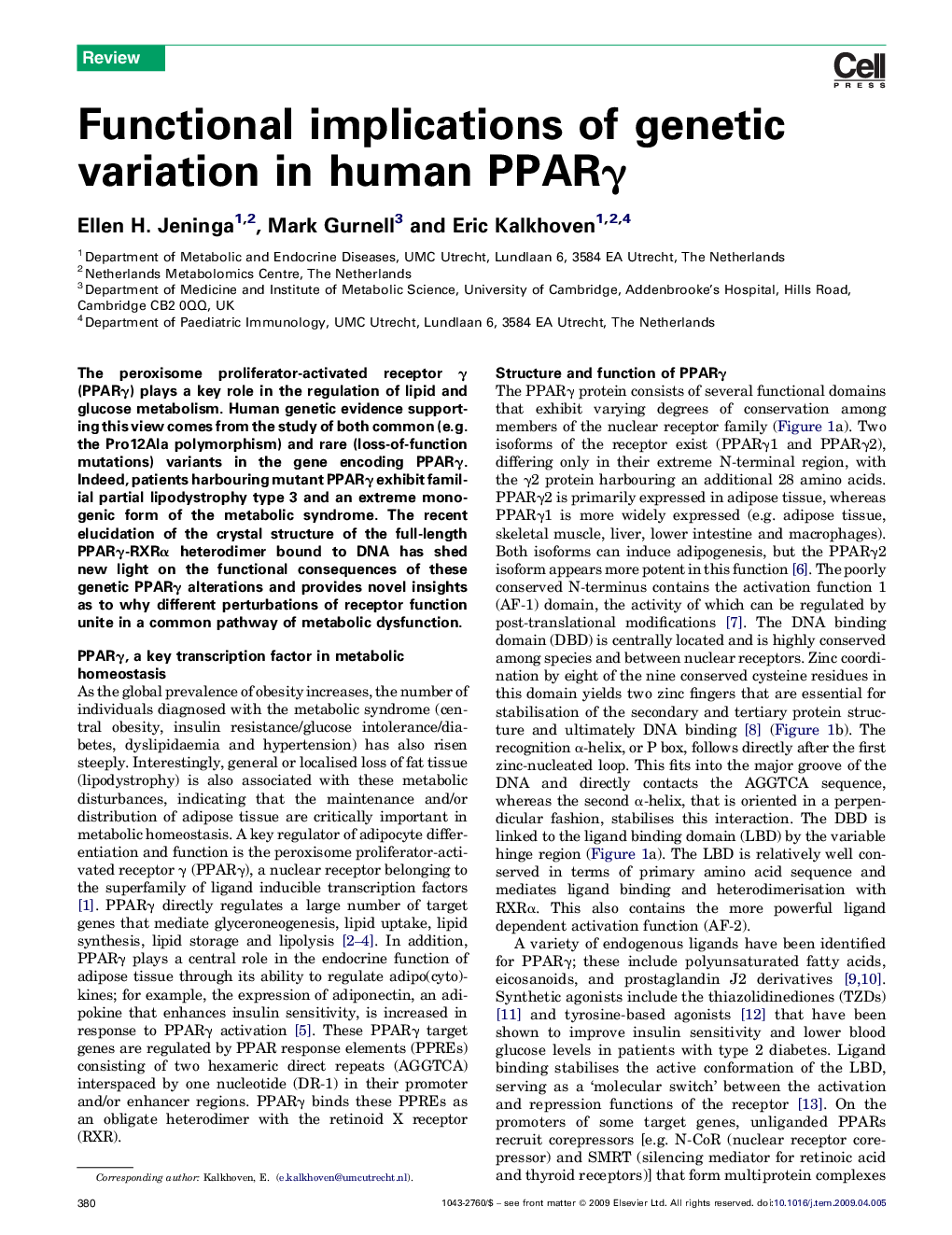| Article ID | Journal | Published Year | Pages | File Type |
|---|---|---|---|---|
| 2811103 | Trends in Endocrinology & Metabolism | 2009 | 8 Pages |
The peroxisome proliferator-activated receptor γ (PPARγ) plays a key role in the regulation of lipid and glucose metabolism. Human genetic evidence supporting this view comes from the study of both common (e.g. the Pro12Ala polymorphism) and rare (loss-of-function mutations) variants in the gene encoding PPARγ. Indeed, patients harbouring mutant PPARγ exhibit familial partial lipodystrophy type 3 and an extreme monogenic form of the metabolic syndrome. The recent elucidation of the crystal structure of the full-length PPARγ-RXRα heterodimer bound to DNA has shed new light on the functional consequences of these genetic PPARγ alterations and provides novel insights as to why different perturbations of receptor function unite in a common pathway of metabolic dysfunction.
